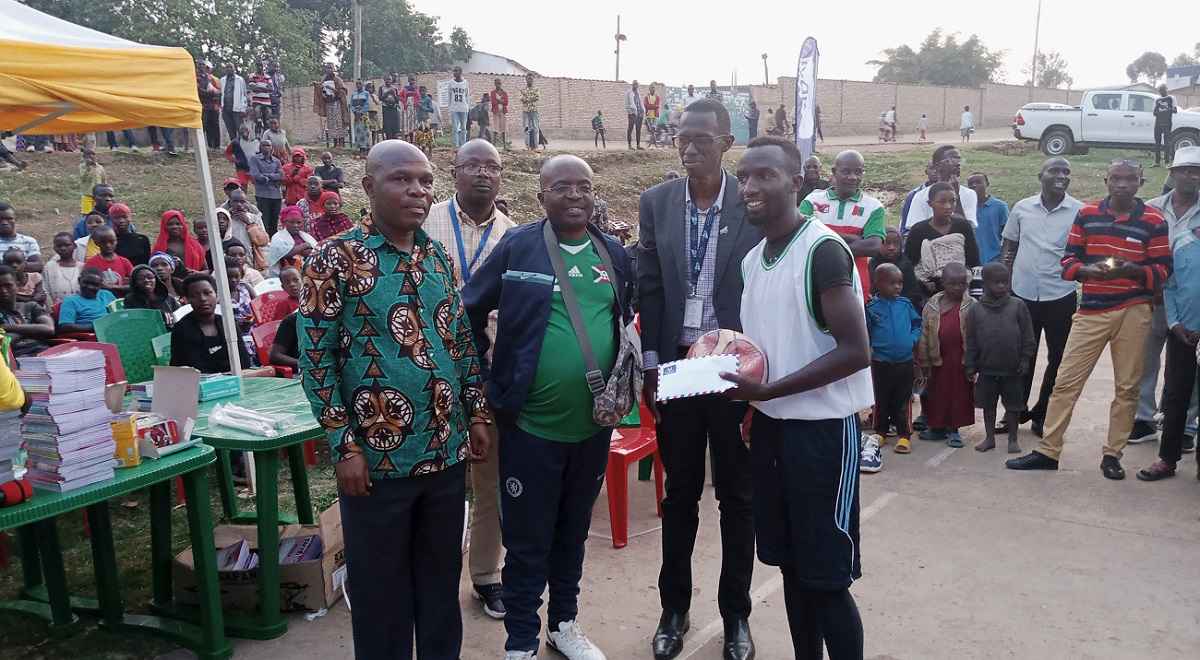A health mediator is a person who is responsible for informing, guiding and accompanying clients who visit a health facility, so that they have rapid access to healthcare services.
For the health structure such as Service Yezu Mwiza (SYM), which takes care of the vulnerable, being a health mediator is more a vocation than a profession, as Mrs. Elisabeth, head of the mediation service, points out: “being a health mediator requires us to sacrifice ourselves for the well-being of our patients. For example, when we make home visits in search of those lost to follow-up, we have to walk long distances whether in the rain or the blazing sun, or when we accompany a patient to the hospital. after our service time, without forgetting that sometimes we play the role of sick guard, with the sole aim of helping the patient to recover his/ her good health”. “There is no greater feeling than to meet, in good health, a beneficiary of whom you have put yourselves, to save his life. Because we often find them between life and death”, adds Christine, health mediator at SYM.
Being a health mediator is not always an easy task, given the sensitivity of the information collected and the embarrassment for the patient to talk about his or her difficulties. The health mediator must therefore have the qualities that are essential for the patient to open up to him or her, in particular: empathy, good listening skills, trust, discretion, understanding and availability.
Health mediator accompanied by a community relay in the search for lost sight
Overall management in principle involves two aspects: medical and psychosocial management. In order for global management to be successful, there must be complementarity between these two services. This means that after the medication has been dispensed, the mediation service takes over to follow up on the regular intake of medication, with a particular emphasis on therapeutic education, in order to help the patient to accept and live positively with the disease.
In addition to HIV management, Service Yezu Mwiza also supports its vulnerable beneficiaries hospitalized in other health facilities. The mediation service then plans visits to the hospital, to inquire about their health conditions.
"Some of them don't even have enough food to eat when they are there, so often during our visits, we go there with a few provisions provided by SYM, but also with the medicines they need. Sometimes, we spend a whole day there, to reassure ourselves that nothing is missing, especially if there are tests to be done," adds Jean Noël MUKUNZI.
In that vocation to save lives, health mediators also sometimes encounter a lot of challenges: "One of our beneficiaries was following his ARV treatment correctly and had an undetectable viral load, afterwards he had mental disorders due to his family problems. We wanted to help him, to have him treated in a specialized facility, but his family refused our support. We went to his home with a community relay as well as the representative of the local administration, but the family is still hostile. Knowing that this person person is going to lose his life because of his family's bad decisions saddens me deeply” says Mrs. Elisabeth indignantly.
SYM: Distribution of school kits to members of associations of people affected by leprosy

SYM: Sensitization on pre and post-exposure to HIV in Kayanza and Ngozi
SYM: Managing co-morbidities among people living with HIV
SYM: Quarterly meeting of community relays
Distribution of work tools to young volunteers and to the pillars of the SRH community solutions project called